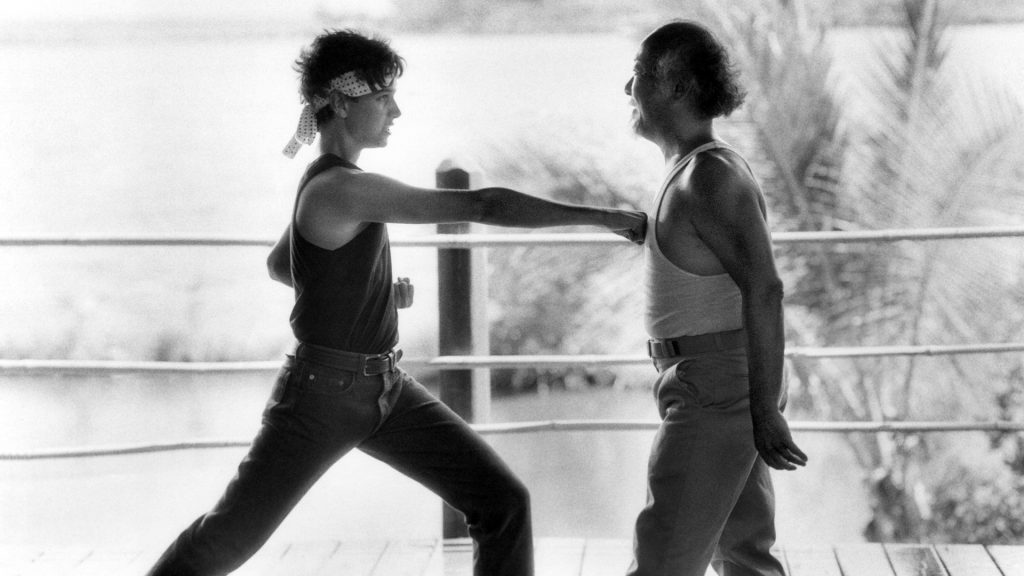In the classic 1984 film The Karate Kid, Daniel Larusso has an “aha!” moment when he realizes the menial car polishing tasks that Mr. Miyagi assigned him – “Wax on, wax off” – actually trained his reflexes to defend himself when attacked.
What Daniel saw as menial tasks are a form of what’s known in martial arts as kata: choreographed sets of movements that practitioners use to train their minds and bodies to be able to put into practice when needed. Each move practiced in a particular kata flows from the previous one to be able to react in a predicted manner.
The “Wax on, wax off” movement in The Karate Kid, for example, is a blocking movement. After, Daniel adds a follow-up attack movement based on the position of his opponent after the blocking movement, and so on. Through the rigid and frequent practice of these movements by himself, he is ready to implement them when needed.
Practicing kata helps focus the mind, train muscle memory, and even build confidence. And these benefits can be enjoyed by anyone, not only martial artists. You can even apply the philosophy behind kata to hone your skills outside of the martial arts.
Using the kata philosophy at work
The core principle behind kata is that the rigid practice of a set of movements by oneself will allow the practitioner to learn, improve, and ultimately master a specific skill.
But think of kata as the practice of a specific pattern to hone any type of skill. Through a specific methodology, we can learn a skill, improve upon it, and eventually master it through consistent practice.
If you’re an athlete, you likely already use some form of kata in practice. A tennis player, for example, may practice the motion of swinging the racket without facing an opponent. Combine this with follow-up body positioning and additional swings, and they are practicing kata.
A musician, to take another example, also undertakes similar kata-like routines when learning and mastering an instrument.
The kata philosophy can even be implemented in an office environment. If you use a computer frequently, try to take five minutes out of your day to practice a short typing exercise.Over time, you’ll find that your typing speed and accuracy will improve, skills that many of us can use.
If you’re a salesperson, try to spend a few minutes every day running through a sales script and watch how it might impact your performance. If you’re a computer programmer, practicing a short coding exercise every day can help fine-tune your skills.
NEW! Put the principles from this article into practice with the free courage-boosting MaArtial app on the App Store for iOs and Play Store for Android.
Just about any skill can be learned, improved and ultimately mastered through what may initially seem like a menial exercise. But rigid and frequent practice of these tasks helps train our minds to perform them as second nature. And it’s the same philosophy that helped the Karate Kid become a martial arts champion.

[text-block-start]
To try to apply kata to your own professional life you can use the Toyota Kata method, a coaching technique based on the principles learned through martial arts:
- Imagine your desired end goal.
- Assess the current situation.
- Establish the steps that represent a path to the end goal.
- Create and practice a series of exercises that lead to this goal.
Martial artists have been using kata for centuries to learn and master their craft – and you can use the same concepts to help hone your skills. Whatever they may be!
[text-block-end title=”MaArtial comment”]












